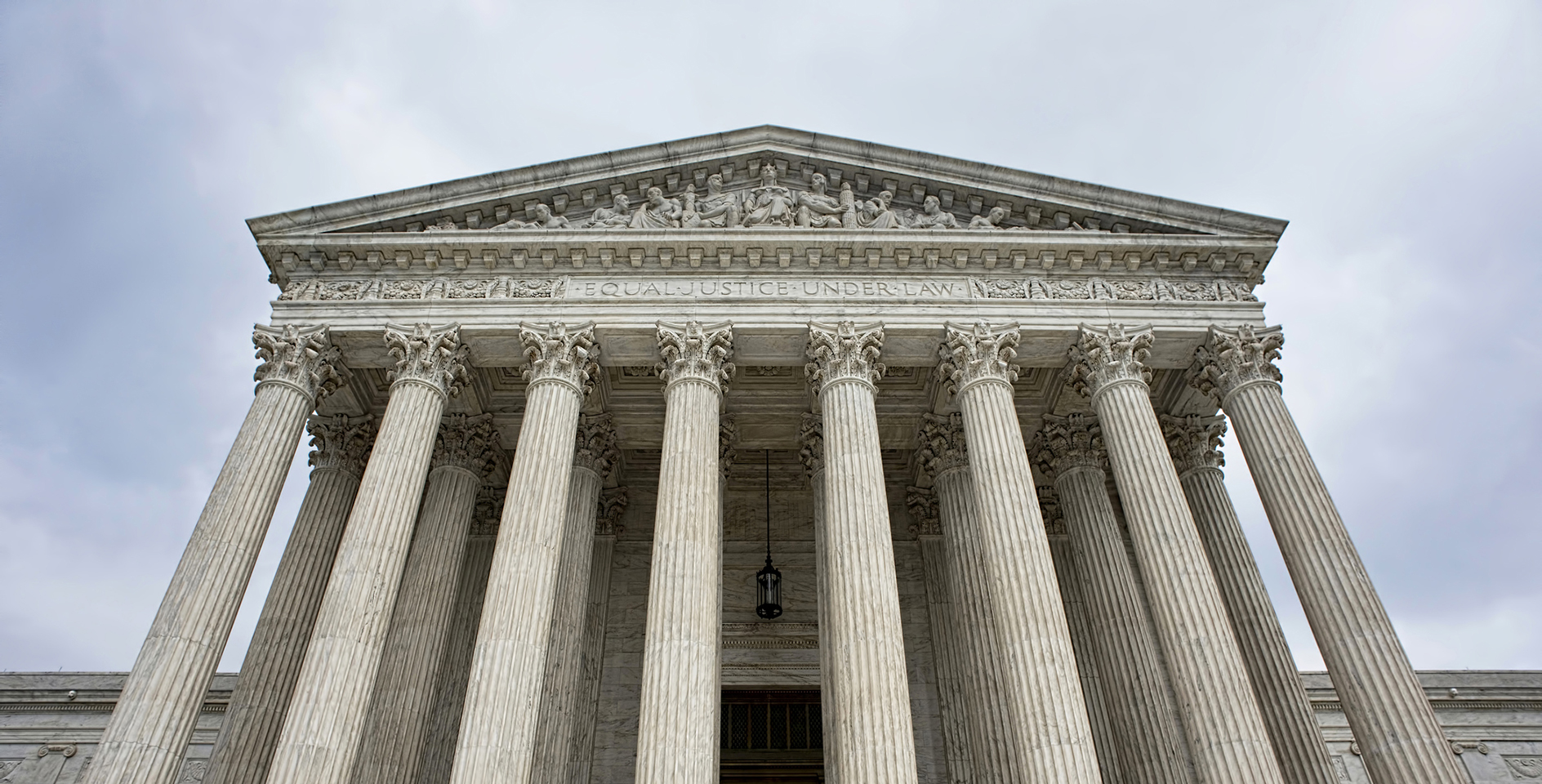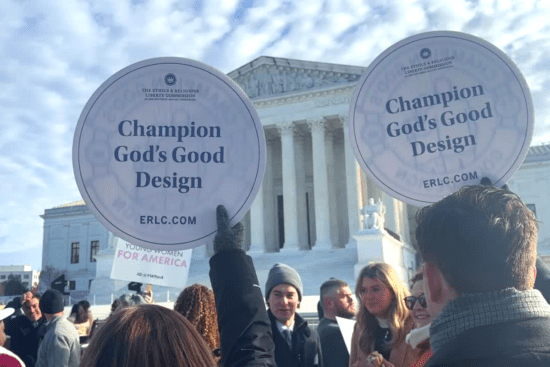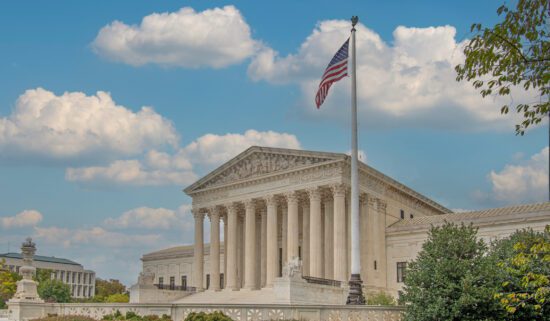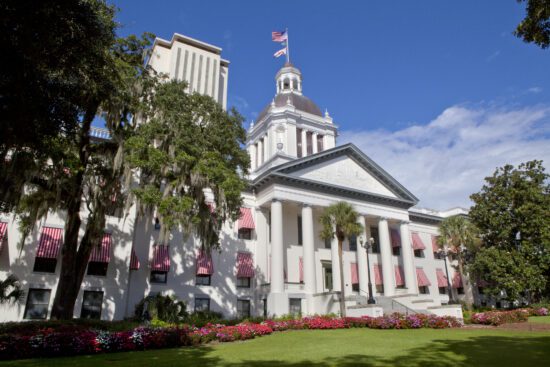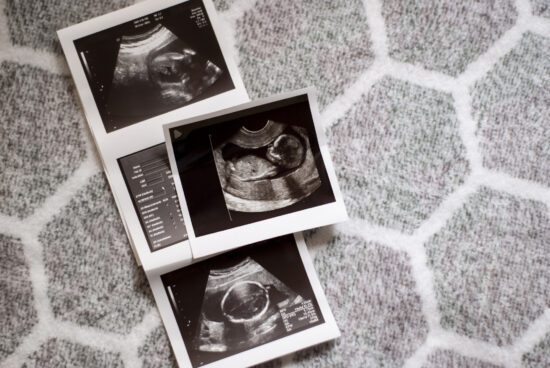Yesterday, the U.S. Supreme Court began its 2021-22 term. For the first time in more than 18 months, the justices will be physically present in the courtroom for oral arguments. Justice Kavanaugh will participate remotely because he tested positive for COVID-19 last week. According to the Supreme Court, “Courtroom access will be limited to the Justices, essential Court personnel, counsel in the scheduled cases, and journalists with full-time press credentials issued by the Supreme Court.” However, the court will provide a live audio feed for the October, November, and December oral arguments.
The previous term of the Supreme Court contained some important cases that advanced the cause of religious liberty in the United States. This term, the cases the court will be hearing and deciding could have major implications on both religious liberty and life issues. Here is a rundown of some of the cases we will be watching.
Dobbs v. Jackson Women’s Health Organization
In mid-May, the Supreme Court granted cert on a case reviewing a Mississippi law that would replace the ‘viability standard’ with a limit on abortions after 15 weeks of pregnancy. The issue the court will be deciding is whether pre-viability prohibitions on elective abortions are unconstitional.
Mississippi passed a law in 2018 titled the “Gestational Age Act,” prohibiting abortions after 15 weeks except in a medical emergency and in cases of severe fetal abnormality. According to the findings in the legislation, “an unborn human being’s vital organs begin to function at ten weeks’ gestation. Hair, fingernails, and toenails also begin to form.” And “at twelve weeks’ gestation, an unborn human being can open and close his or her fingers, starts to make sucking motions, and senses stimulation from the world outside the womb.”
A doctor with Jackson Women’s Health Organization filed a lawsuit in federal district court challenging the law and requesting an emergency temporary restraining order (TRO). A district court enjoined Mississippi from enforcing the law, finding that the state had not provided evidence that a fetus would be viable at 15 weeks. Additionally, the district court believed that the Supreme Court precedent prohibits states from banning abortions prior to viability. The case represents a significant opportunity for the pro-life movement as hundreds of proposed state laws protecting the unborn could potentially take effect.
The ERLC filed an amicus brief in this case, requesting the U.S. Supreme Court overturn the precedent set in the Roe v. Wade (1973) and Planned Parenthood v. Casey (1992) decisions that have prevented states from prohibiting abortion. The ERLC joined with other pro-life organizations on the brief, including the U.S. Conference of Catholic Bishops, National Association of Evangelicals, and the Lutheran Church-Missouri Synod.
Oral arguments for Dobbs will be held on Dec. 1, 2021.
For further reading:
- Explainer: Supreme Court takes up Dobbs v. Jackson Women’s Health Organization
- ERLC and other pro-life organizations file brief requesting the U.S. Supreme Court overturn Roe v. Wade
Each state is required to ensure that they are providing every school-aged child access to a free education. The state of Maine relies on local school administrative units (SAUs) to ensure that children have access to free education. For private schools to be approved, they must meet the state’s compulsory attendance requirements, and it must be “nonsectarian in accordance with the First Amendment.”
Three families wished to send their children to private schools that were accredited, but did not meet the nonsectarian requirement because they are religiously affiliated. As a result, they were denied public financial assistance. They filed a lawsuit in federal court arguing that the “nonsectarian” requirement violates the Constitution on its face and as applied.
This case is a follow-up to Espinoza v. Montana Department of Revenue, a 2020 case in which the Supreme Court held that Montana could not cut families off from a scholarship program available to all because they wanted to send their children to religious schools. In Espinoza, a state constitutional provision in Montana prohibited state tuition assistance funds from being used for private, religious education. The court will take up a question that wasn’t answered in the Espinoza case — “Does a state violate the Constitution when it operates a program that provides students with money to attend private schools but bars them from attending schools that provide religious instruction?”
The ERLC filed an amicus brief, arguing that the government should not discriminate against religion or people who wish to send their children to religious institutions.
Oral arguments for the Carson case will be held on Dec. 8, 2021.
On Sept. 8, just hours before John Ramirez was to be executed for a murder in Corpus Christi, the Supreme Court granted a stay of the execution. Ramirez sued Texas prison officials in August for refusing to permit Dana Moore, pastor of Second Baptist Church in Corpus Christi, to minister to him when he is executed. This case deals with the question of whether the state can prohibit a pastor or spiritual advisor from offering audible prayers and spiritual touch to an inmate condemned for execution.
Brent Leatherwood, ERLC’s acting president, stated that “the high court should overrule Texas’ ban and allow this important and solemn moment of ministry to proceed. Religious freedom doesn’t end as you approach the moment of death, and we have joined a brief saying as much,” Leatherwood said in written comments. “The state has yet to make a compelling argument for why Pastor Moore, an SBC pastor, cannot minister to Mr. Ramirez in these final moments.”
The ERLC filed an amicus brief asking the U.S. Supreme Court to protect the freedom of a condemned Texas inmate to have a Southern Baptist pastor lay hands on and pray for him when he receives a lethal injection.
Oral arguments for the Ramirez case will be held on Nov. 1, 2021.
Brief the ERLC has joined
In addition to the cases before the Supreme Court this Fall, the ERLC has joined a brief on Petition for Writ of Certiorari (asking the court to grant cert.)
Seattle Union Gospel Mission v. Woods
Seattle Union Gospel Mission is a nonprofit ministry that serves the homeless in King County, Washington, by providing food, shelter, legal services, and addiction-recovery support. They also share the gospel with the homeless they serve. Matthew Woods, a lawyer, applied to work at the legal clinic even though he didn’t to the mission’s religious requirements for employees — including attending church and embracing the mission’s biblical view of sexual relations. Woods wasn’t hired, and he sued.
The mission’s religious convictions are the foundation for all the work they do, and they expect every staff member to share and live in accordance with the their religious beliefs. It is that evangelization that makes the mission so successful at the work they do. The question in this case is who counts as a minister for the purposes of the ministerial exception.
The ERLC engages our culture with the gospel of Jesus Christ in the public square to protect religious liberty and promote human flourishing. One of the ways we do this is by advocating for these things before the Supreme Court. While we’ve worked diligently and pray earnestly that the court will make decisions that uphold life, religious liberty, and the freedom of conscience, we ultimately place our trust in God to fulfil his plans and use the work of the ERLC along the way. As the psalmist declares, “Some trust in chariots and some in horses, but we trust in the name of the LORD our God” (Psa. 20:7 NIV).



